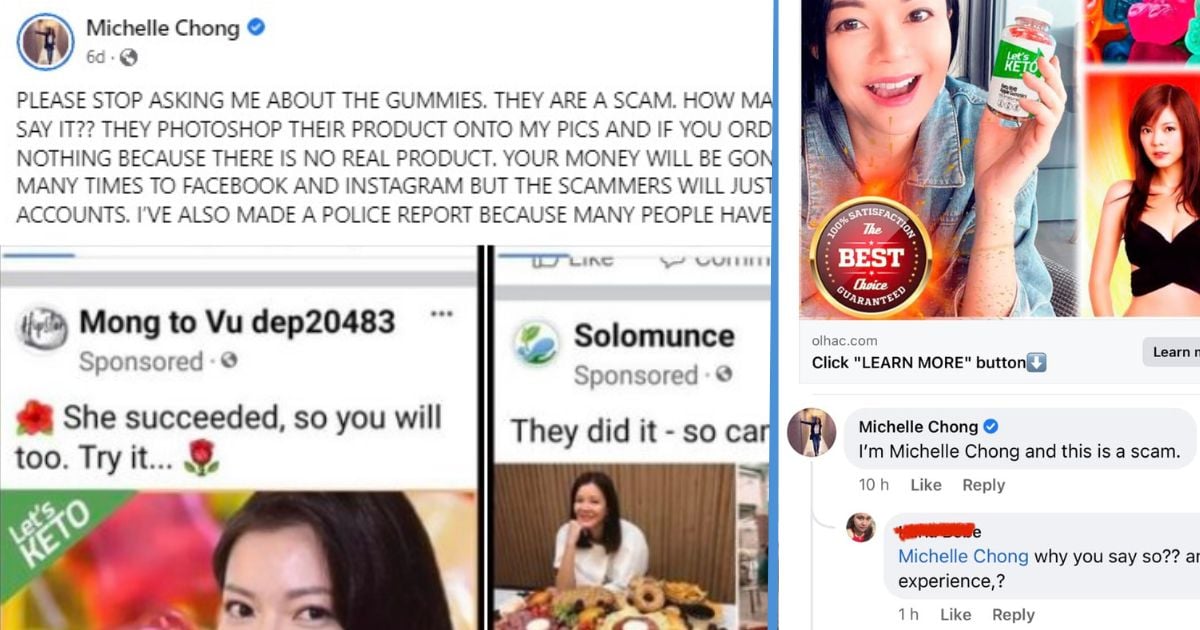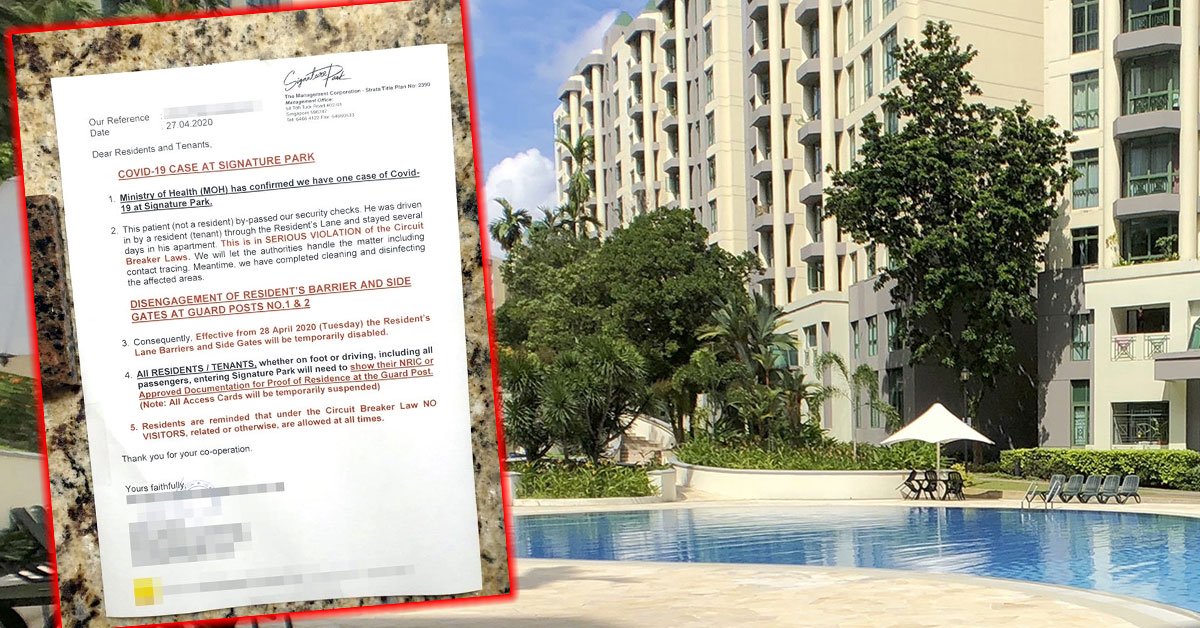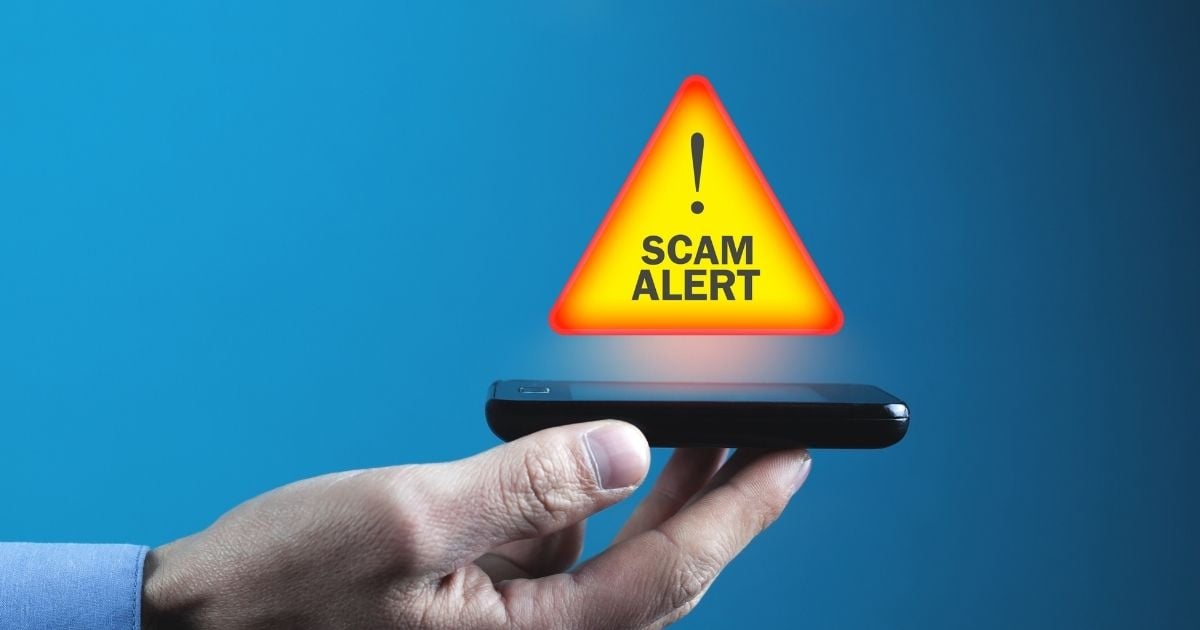You may have come across some Facebook or Instagram posts about Michelle Chong endorsing gummies promising slimming effects while scrolling through your feed or explore pages.
If slimming gummies sound like a scam to you, you’re spot on.
But perhaps not in the way that you would’ve expected.
The scam here is that Michelle Chong is not affiliated with gummy sellers and this is all part of an ongoing impersonation incident.
Michelle Chong Posts Scam Warning on Facebook
Michelle Chong has made a post, entirely in shouty capital letters, on her Facebook page asking for people to stop directing questions about the gummies to her.
The fury is real with this one.
She then goes on to mention that the images of her are not real—they are digitally edited with Photoshop.
There’s also a clear warning that “you will get nothing” if you order the gummies since “there is no real product”.
Indeed, “your money will be gone”.
Apparently, Facebook and Instagram have not of much help in Michelle Chong’s battle against the scammers as she has “reported many times” but the scammers “just start new accounts”.
Ah scammers, the modern-day Hydra of society. There’s no beating them.
And Michelle Chong has also apparently run out of steam.
A few days after her all-caps post, she posted a screenshot with the caption “I give up”.
The reason behind this resigned tone is in the screenshot she attaches.
The screenshot shows another scam perpetrator using her image to promote the gummies, with her comment on the post proclaiming the scam and a hilarious reply asking her “why [she says] so” and whether she has “any experience”.
Apparently, some readers just don’t get it.
Other Local Celebrity Impersonations
Michelle Chong is definitely not alone in this battle against impersonation.
Other local celebrities have also been hit by impersonators seeking to scam loyal fans of these artistes.
In 2020, a scammer impersonated Desmond Tan and cheated a 50-year-old fan of RM 60,000 (~S$20,000). The fan was from Johor Bahru and had spoken to the scammer over a private Facebook message, which later progressed to Line and WeChat before the scammer started to ask the fan for money.
In 2018, local actress Xiang Yun was also the target of impersonation where scammers used a fake account of her to ask people for money as part of “investments”.
Scam Occurrences Have Been Rising
Scams in Singapore have been on a rise the past year, with over $227 million collectively lost to top 10 scams in the first half of 2022.
The problem has become drastic enough that the Infocomm Media Development Authority (IMDA), a statutory board under Ministry of Communications and Information (MCI) and a watchdog to foster a ” safe and inclusive digital society”, has recently stepped in with measures targeted at reducing the likelihood of scam occurrences.
Certain SMSes are now being flagged as “likely scam” if they are sent from businesses who are not registered with the IMDA’s SMS Sender ID Registry. This will be the case even if the business is a legitimate one.
You can watch this video to know more about the registry:
It’s definitely a growing pain point to watch out for.
Featured Image: Facebook (Michelle Chong)



